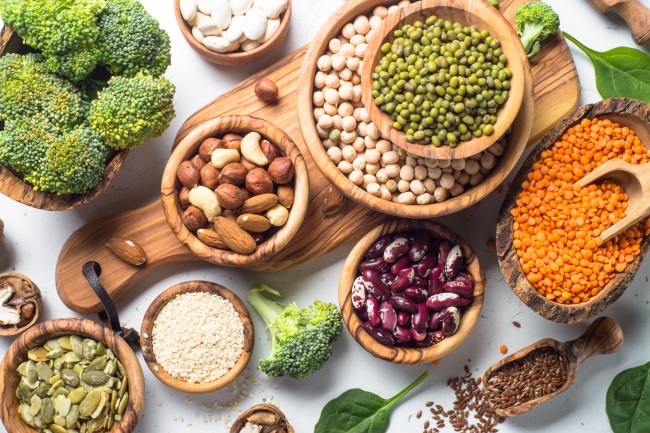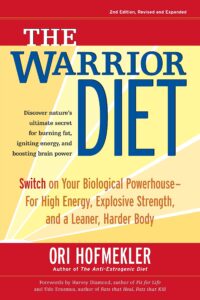Fitness & Nutrition Coach Zita Gacser talks nutrition fasting and eating patterns.
5:2, 4:3, 16:8… Believe it or not, these are not the latest Euro 2020 scores but eating patterns. You may have heard about IF (intermittent fasting), The Warrior Diet, or books such as Eat Stop Eat or The Fast Diet. All of these are different types of fasting, and if you want to learn more or are still on the fence about whether you should try fasting or not, this article is for you.
So what is fasting?
Fasting is essentially going for a longer period of time without consuming any food (and, in certain practices, liquids). This is nothing new for Muslims who fast from dawn to dusk during Ramadan or Jews who go without eating and drinking for 25 hours during Yom Kippur and Tisha B’Av. Even Christians and Buddhists have their own traditions that involve some sort of fasting.
Religious practices aside, fasting has gained popularity in recent years due to numerous books, documentaries and studies claiming significant health benefits associated with this eating pattern, such as improved blood glucose and cholesterol levels, weight loss, reduced risk for heart disease and cancer, and increased longevity, among others. Does that sound too good to be true? It may very well be: in certain cases, evidence is only anecdotal, and when it comes to scientific research, many of the cited studies were conducted on rodents, not on humans.
What are the different types of fasting?
The most popular forms of fasting are time restricted feedings such as 16:8 (also known as intermittent fasting or IF in short) and 20:4 (The Warrior Diet) where the first number indicates the hours of your ‘fasting window’ and the second number is your ‘feeding window’.
16:8 would therefore mean you go 16 hours without any food, and eat as many meals as you want in your 8-hour feeding window. For instance, you skip breakfast, have lunch at noon, have dinner at 8pm, then fast again until noon the next day. Water, coffee and other calorie-free liquids can however be consumed even in your fasting window.
Another form of fasting is intermittent energy restriction, which is essentially significantly lowering your food intake on certain days of the week. 5:2 is one of the most popular intermittent energy-restriction diets where you restrict your calorie intake 2 days a week to 500-600 calories and eat normally 5 days a week.
 Those who prefer full-day (24-hour) fasts may opt for fasting every other day (also known as the 4:3 diet) or only 1-2 days a week. Skipping meals is also a form of fasting, albeit a less structured one. So, if you skipped breakfast this morning and are now wondering whether that counts as fasting… it does!
Those who prefer full-day (24-hour) fasts may opt for fasting every other day (also known as the 4:3 diet) or only 1-2 days a week. Skipping meals is also a form of fasting, albeit a less structured one. So, if you skipped breakfast this morning and are now wondering whether that counts as fasting… it does!
Pros and cons
Do you eat breakfast every morning not because you are hungry but because you were always told that it is the most important meal of the day? Do you eat every 2-3 hours because you heard that will boost your metabolism? If so, fasting may be a gamechanger for you, especially if fat loss is your primary goal: with fasting, you can significantly decrease your calorie intake – provided you do not compensate in your feeding window for the calories missed in your fasting window.
For those constantly struggling with anxiety around food (when to eat next, what and how much), skipping meals may very well be a viable solution. Fewer meals consumed also means fewer trips to the grocery store, potentially less money spent on food and fewer dishes to do – need I say more? Fasting can also teach you that hunger isn’t an emergency and you can go much longer without food than you would think. In addition to improved hunger cues, men also report better mental clarity, more energy and increased productivity while fasting.
Women, however, report binge-eating episodes, metabolic disruptions, amenorrhea (loss of menstrual cycle), mood changes and brain fog. Furthermore, both sexes might experience insomnia, insufficient recovery from training, digestive issues, nutrient deficiencies, muscle mass loss, and irritability.
Fasting and fat loss
Sad news, but contrary to popular belief, fasting isn’t the green light for you to bury your face in pizza and chocolate cake every evening to make up for the calories you missed out on during the day. If fat loss is your primary goal, remember that you still need to consume less energy than what you burn in a day – the timing of your meals isn’t as important as total calorie intake. Regardless of the exact eating pattern you follow, you might still want to emphasize whole, nutritious foods in your diet, which is exactly why fasting seems to work like magic for certain people: when you swap out your daily trips to fast-food town for consuming mostly healthy meals, weight loss and improved health markers are pretty much guaranteed.
 Fasting and athletic performance
Fasting and athletic performance
As mentioned above, fasting may result in the loss of lean body mass and impaired recovery and is therefore not ideal for sports performance. If you decide to try out fasting regardless, make sure you consume the right amounts of proteins to prevent muscle mass loss and enhance muscle repair and growth. If you follow a time-restricted feeding, time your meals around your workout: break your fast by consuming mostly carbohydrates and proteins before your workout (either in the form of a protein shake or solid foods), and refuel after your session with a larger meal. However, if going into training fasted makes you moody and only results in less-than optimal performance, you may want to fast after your workout or refrain from fasting altogether.
If you follow an intermittent energy restriction pattern, schedule your workouts to ‘normal’ eating days and take low-calorie days off from training.
To fast or not to fast?
Whether you should try fasting or not depends not only on your sex and health status but also on age, psychological and environmental factors. Pregnant women, kids, people with diabetes or any other underlying health condition that requires frequent eating, anyone with a history of eating disorders, or under a lot of stress should refrain from fasting.
Make sure the cons do not outweigh the pros – just like any other diet, fasting works best when it complements your lifestyle, not further complicates it. If, however, skipping meals only makes you feel ‘hangry’ and miserable, it is a sure sign that fasting isn’t right for you. Similarly, if your job requires you to go from one business luncheon to another, fasting may not even be an option for you.
Bottom line
Fasting won’t magically improve your health markers and give you six-pack abs – benefits are observed when it is combined with other healthy habits such as optimal nutrition, regular exercise and quality sleep.
For fat loss, focus on achieving a calorie deficit. Whether you achieve it with fasting, reducing portion sizes, or improving the quality of your diet is up to you. Lastly, if you are unsure whether fasting is safe for you, consult with a healthcare professional.







